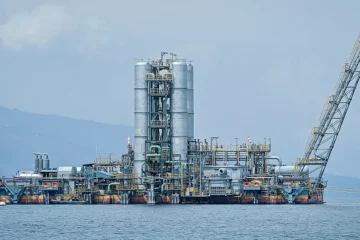As climate disasters intensify across the African continent, Ghana’s Minister of State for Climate Change and Sustainability, Mr. Seidu Issifu, is calling on the international community to establish a climate debt forgiveness mechanism, arguing that the very survival of vulnerable nations depends on it.
Speaking during a high-level engagement with the African Group of Negotiators Experts Support (AGNES) in Accra, Mr. Issifu delivered a stark message: Africa is being dragged into a debt crisis for environmental damage it did not cause, and without urgent reform of the global financial system, the continent’s development trajectory is under threat.
“We are borrowing to fix problems we didn’t create, while those who caused the damage continue to grow,” the Minister said. “Meanwhile, our people suffer from the health, economic, and environmental fallout.”
In 2020 alone, Ghana recorded an estimated $195 million in losses due to climate-related disasters such as droughts and floods. By 2050, those annual losses could rise to $550 million, according to government projections. And Ghana is not alone.
Across the continent, climate-related events are ravaging agriculture, displacing families, and straining health and infrastructure systems. Yet, as the devastation mounts, African nations find themselves locked into high-interest loans from global markets to fund climate adaptation and disaster recovery, deepening an already precarious debt burden.
Debt Trap Born from Injustice
The call for a climate debt relief mechanism comes as Africa’s voice grows louder in the global climate space, demanding not just empathy but structural change. For African leaders and negotiators, the issue is not charity, but justice.
“This is not our doing. It is the cost of someone else’s development,” Mr. Issifu said.
Africa contributes less than 4% of global greenhouse gas emissions, yet it bears a disproportionate share of the consequences. According to AGNES and the African Group of Negotiators (AGN), no African country is fully adapted to climate change. Droughts, floods, extreme weather, crop failure, and water stress are now persistent threats, especially in the Sahel, Horn of Africa, and coastal West Africa.
“If the current debt trajectory continues, African nations could be pushed to the edge of economic collapse,” Mr. Issifu warned, noting that reliance on donor pledges and fragmented project-based funding is no longer tenable.
Toward a Unified African Agenda
The AGNES visit to Accra aimed to align Ghana’s climate policy more closely with the AGN’s continental priorities, including climate adaptation, loss and damage finance, just transitions, and now climate debt relief.
Dr. George Wamukoya, AGNES team lead, emphasized Africa’s urgent need for strategic coordination and predictable funding, saying that frameworks like Nationally Determined Contributions (NDCs) and National Adaptation Plans (NAPs) are critical, but only if matched with real finance and implementation support.
“Science has spoken: Africa is the most climate-vulnerable region on Earth,” he said.
“And no African country is yet safe from what’s coming.”
Mr. Issifu also outlined Ghana’s national climate strategy, including: Creating climate and sustainability units across all climate-sensitive ministries; establishing a multi-sectoral technical working group to harmonize policy and funding; Launching a national climate action hub to scale solutions in agriculture, health, and energy.
But all these efforts, he stressed, will stall if fiscal space is not freed up.
“Pockets of initiatives from smart agriculture to irrigation exist, but they need consistent funding. Our vision is internal resilience, but that won’t happen if we’re drowning in debt caused by someone else’s emissions.”
A Call to COP and Beyond
With negotiations underway for the next UN Climate Change Conference (COP), Mr. Issifu urged African delegates to adopt a firm, united stance on climate debt. He called for the climate debt forgiveness agenda to be placed on the official negotiation table, not as an afterthought, but as a pillar of climate justice.
The African continent is not asking for favors, he argued. It is demanding fairness, and a chance to adapt, build resilience, and transition justly, without being punished financially for global failures it did not create.
“If we don’t act now,” the Minister said, “we will not only inherit an unlivable planet, but we’ll do so under a mountain of unjust debt.”








